Curious Questions: Can you really live off the grid in 2022?
The pandemic forced millions of us to re-evaluate where and how we live — and what's important to us. The answer for many was to live off the grid. But can it really be compatible with modern life? Adam Hay-Nicholls tried it out — and spoke to some of those who have made it work.

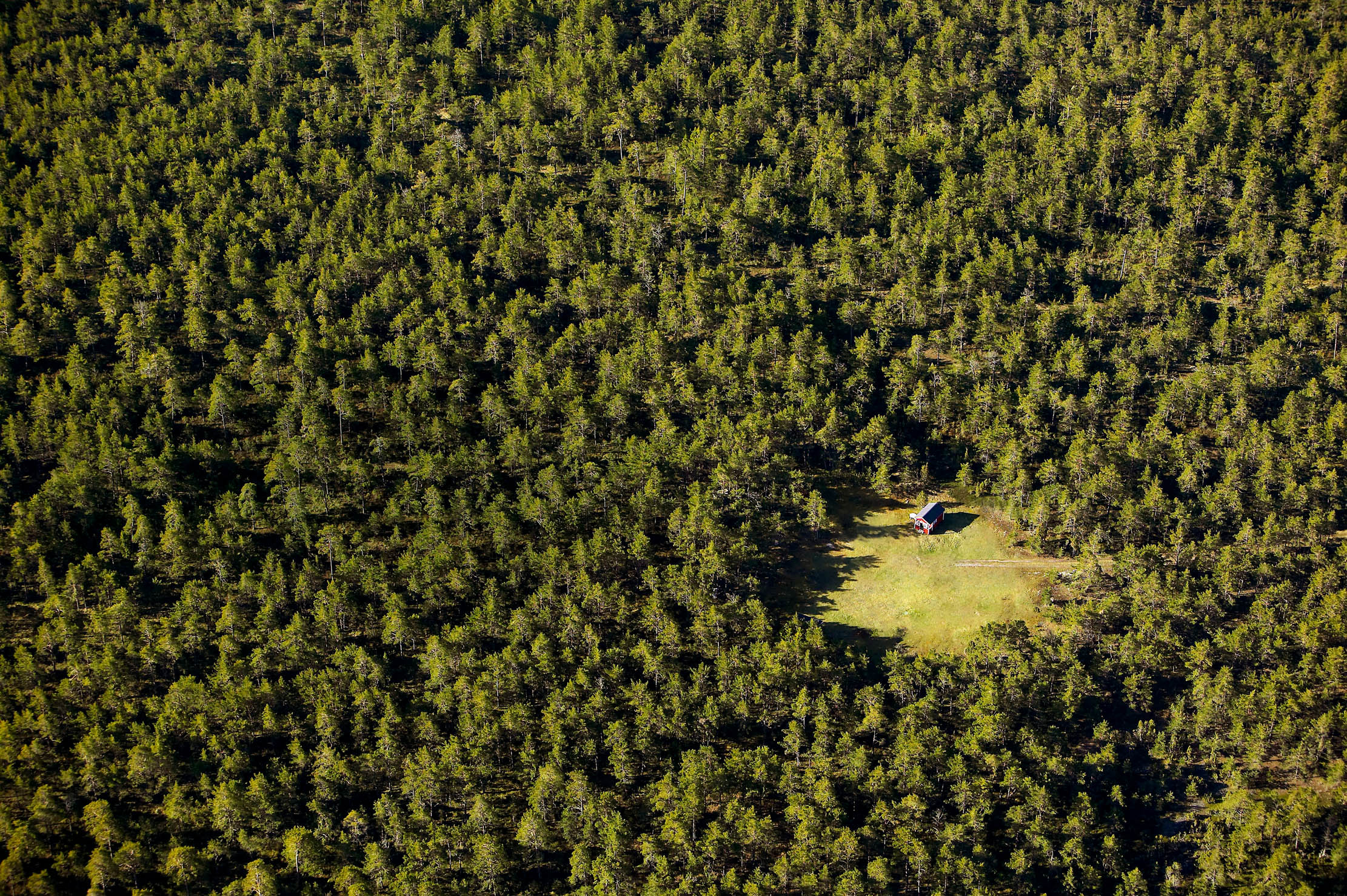
Exquisite houses, the beauty of Nature, and how to get the most from your life, straight to your inbox.
You are now subscribed
Your newsletter sign-up was successful
I managed to find the bolthole of my dreams through the magic of Google Maps. This wasn’t some ethereal getaway inspired by the pages of travel magazines or Grand Designs, but rather a real place that was burned into my memory more than 30 years ago. But I had no idea where it was until I stumbled on it.
Northumberland, that’s all I knew. A two-room log cabin on the most glorious grouse moor you’ve ever seen, miles from civilisation and unreachable by car. I stayed there, aged eight, with my mother in the summer of 1989. It belonged to a close friend of my great aunt Margaret. His father, an army doctor during the First World War, had built it in the 1920s as a haven, I would later discover, to escape the terrors of his post-traumatic stress. I suppose, in a similar vein, that’s why my great aunt suggested it for a break. My dad had dropped dead a few months earlier and abluting in a cold stream does help take one’s mind off things. It was the most wonderful holiday and I’d never forgotten it.
Many decades later, with some satellite sleuthing and a lengthy traipse across the heather to an uncertain destination, I struck upon it again. It was exactly as I remembered; a time capsule in the trees, with a small fireplace, sepia portraits, century-old biscuit tins, a crystal-radio set and a library of National Geographics dating from before the moon landing. I left a note and the owner got in touch, inviting me to return this past August.
"He's able to ‘live like a king on £11,000-a-year.’"
In addition to enjoying the wild location, it seemed to be the perfect place in which to write. I had a book deadline approaching and decided to knuckle down here. No electricity was a problem. Typewriter? This biography wasn’t going to get nailed with inky ribbons, Tip-Ex and no internet. Also, there’s no running water and no loo, but I knew I could easily survive that for a week, treating stream water with purification tablets, cooking on my gas camping stove and doing what bears do. I’d live off instant noodles and warm myself with the log fire and a hipflask full of King’s Ginger.
The field mice mostly left me alone, although a rat or stoat helped itself to some cocktail sausages by gnawing a large hole through a freezer bag. Pleasingly, despite being in the most remote spot in England, I had excellent 4G and could hotspot the internet to my laptop. I used a portable power station the size of two car batteries to keep my computer and iPhone going, charging it via a fold-out solar panel. Those were my essentials in order to earn a living while still living off the grid. Everything else I could do without.
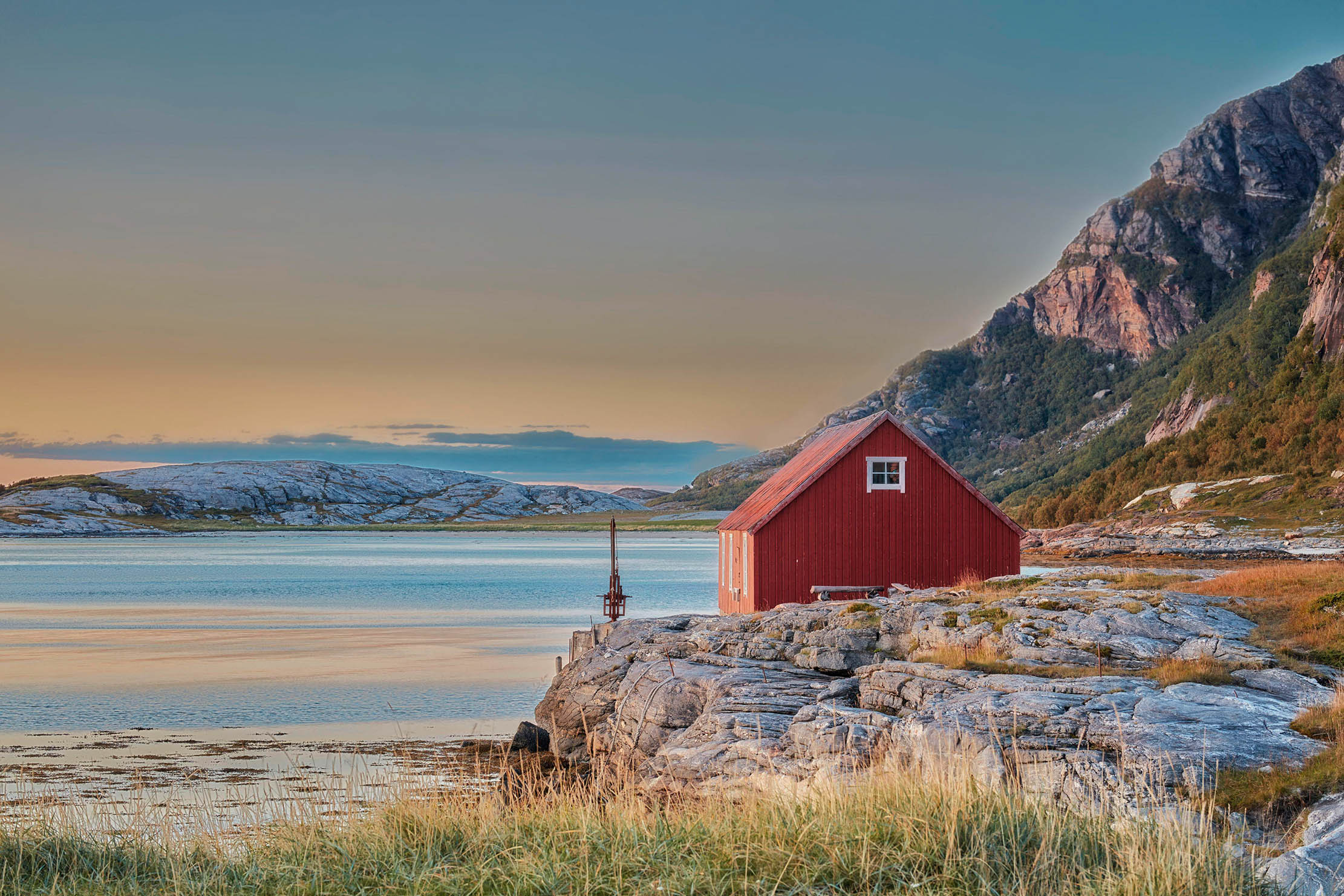
Secluded cottages have long served reclusive artistic types well, particularly painters, poets and pop stars. For baby boomers, the chap who really put the idea on the OS map of ditching the bright lights for the croft was Paul McCartney. Macca and family moved up to Scotland’s Kintyre peninsula in 1970 to escape The Beatles. Intriguingly, Sir Paul’s occasional song-writing partner Kanye West (neither producing their best work) has followed suit. He purchased a ranch in Wyoming, US, from which to record the Ye album and battle his bi-polar disorder. David Bowie saw out his autumn years in the wilderness of the Catskill mountains, New York State, US, where he produced Heathen.
Famous musicians have always been able to call the geographical shots, but then the pandemic came along and, 2½ years later, many of us are still able to work from home. Bosses and clients have become flexible. Most meetings are now virtual. Digital technology is in rapid advance. Culture has changed. We can be Bowie if we want to be. In 2020, a friend of mine who is a senior Downing Street advisor — let’s call her Mary — abandoned her flat in Clapham for a bleak bungalow in the Borders that was snowed in for months on end. From here, she dictated covid strategies over Zoom. She still hasn’t returned to the capital, yet I’m pretty sure the snow has melted. She and her boyfriend have adopted a Brazilian street puppy, who, no doubt, had an even more extreme transition to make, trading Ipanema for Innerleithen.
Exquisite houses, the beauty of Nature, and how to get the most from your life, straight to your inbox.
"A hut in the Pennines, an axe and a sleeping bag is as good a place to start as any"
Another chum, with whom I used to run a Formula One magazine, Adam Carbajal, quit flying around the Grand Prix circuit to buy a plot on the Hawaiian island of Maui and live in a yurt. He used a small petrol generator for power, built a water-catch system with a 500-gallon capacity (it’s pretty rainy in his spot), heated his water via propane and powered the pump with solar. In this environment, he was still able to produce quality magazines for publishers back in Europe. He spent seven years in that yurt, until finally finishing the building of a proper house right next to it, in which he now lives. The land and construction came to £385,000 and it’s now valued at £1.14 million. It only required seven years of doing his business in a bucket.
Others have maintained their jet-setting ways at the same time as embracing a minimalist life. Take investor Nicolas Berggruen, who owns 100 properties in Berlin, but, until relatively recently, didn’t have a place to call his own. Dubbed ‘the homeless billionaire’, he didn’t even possess a watch or a car. He kept his meagre possessions in a paper bag and slept on his Gulfstream — the one luxury he couldn’t dispense with.
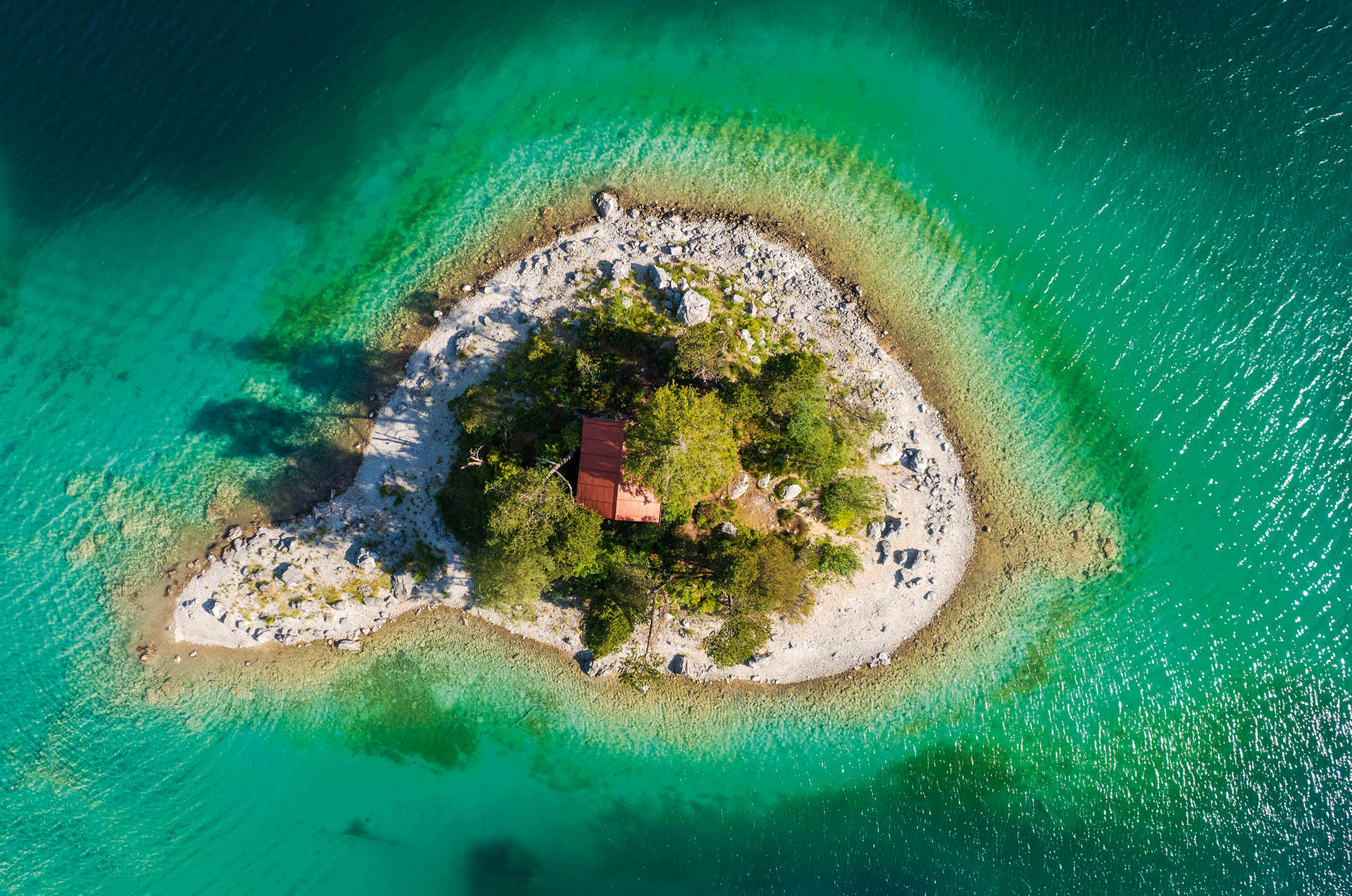
In the age of the influencer, some have managed to turn off-grid lifestyles into commercial enterprises. Foster Huntington was a designer for Ralph Lauren in New York, but jacked it in to journey around America, living out of a van. He is credited with starting the #vanlife movement on Instagram, taking breathtaking photos of his travels for brands such as Patagonia and making stylish books showing off-grid life, landscapes and hipster design, the type of which you find selling at Urban Outfitters. Meanwhile, 30-something architects Dan Deckert and Kika Mevs left Atlanta to sail the world with a small electric sailing boat named Uma. They’ve launched a successful YouTube channel and are currently anchored off Spain. Their lifestyle is financed by ‘donations from social-media patrons’ and platform advertising revenue.
Far from exhausted by the rustic travails, I left Northumberland energised and yearning to return. I wondered whether, if the energy crisis grips the nation harder still, I ought to think about living off the land and sun.
The pandemic lockdowns brought into focus what’s important to us, what we really need. For many, space, independence, family and fresh air have taken precedence over salaries, shopping and the rat race. Laurence Manchee worked in finance in London, Hong Kong and Singapore. Now, he lives in rural Portugal. Passionate about sustainability, he’s built a yoga retreat and teaches permaculture and agroforestry on his 52 acres. Mr Manchee is now self-sufficient, able to ‘live like a king on £11,000-a-year.’
Others are looking to escape more hardcore situations. Julius Strauss was one such chap, an accomplished war reporter for the Daily Telegraph. As it did my Northumberland cabin’s creator, PTSD caught up with him. Iraq, Afghanistan, Sierra Leone; the straw that broke the camel’s back was a school massacre in southern Russia, where 186 kids were killed. ‘I thought then: “I can’t do this anymore.” I needed a change and the idea of Canada came up.’ He and his girlfriend bought a ranch in the middle of nowhere and Julius became a grizzly-bear guide. The wilderness, he thinks, saved his life.
Barrister and naturalist Charles Foster took his fascination with wildlife to the extreme. He decided to live as a badger, an urban fox, a red deer, an otter and a swift, in order to see the world through their eyes. This involved spending weeks under the earth in a sett in the Black Mountains and scavenging the bins of east London at night — on all fours.
Mr Foster’s idea of living off grid probably strikes you as odd. He might be described as one of Britain’s greatest living eccentrics. But you needn’t eat worms or sleep in a bird’s nest to change your way of living for the wilder. A hut in the Pennines, an axe and a sleeping bag is as good a place to start as any, or a yurt, a boat or the Mull of Kintyre. Sometimes, you simply need to cut loose.
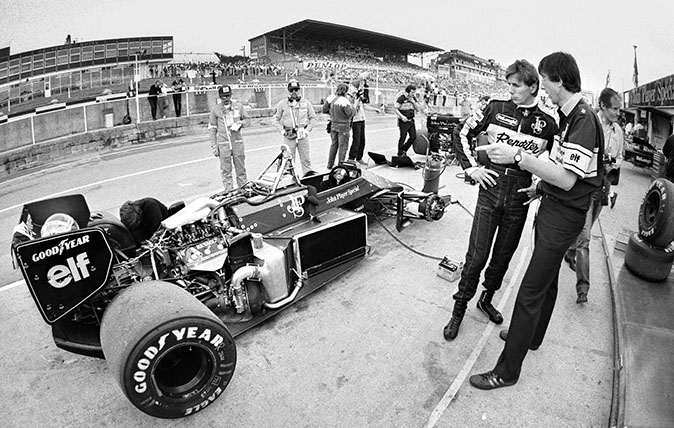
The lives, luxuries and lasciviousness of past and present gentleman racers
Cigars and brandy during pitstops may be a distant memory, but there are still those who pay for the privilege
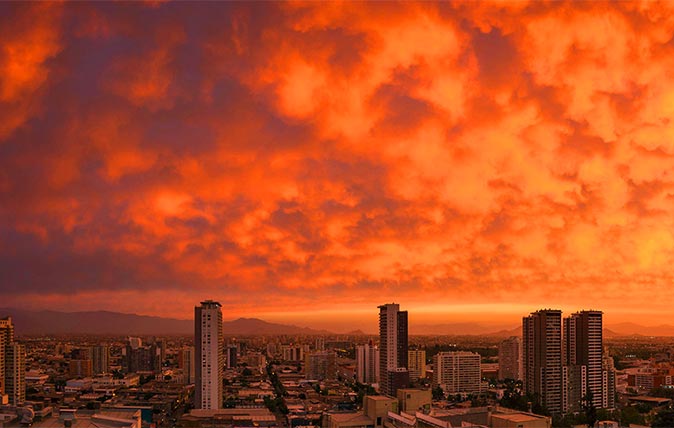
Credit: Alamy
Curious Questions: Does 'Red Sky at Night' actually work? And why?
It's the oldest weather forecasting adage of them all – and you'd be surprised at how accurate it is. Jay Griffiths
Adam Hay-Nicholls is an award-winning journalist. He regularly writes for The Sunday Times Magazine, GQ, Air Mail, Metro, City AM, The Spectator and Wallpaper.

